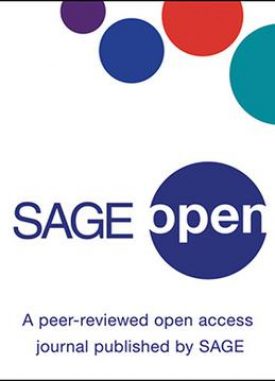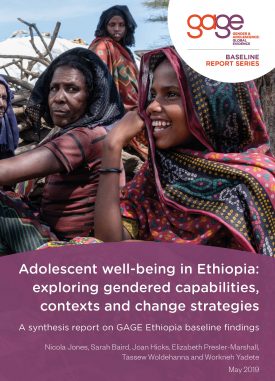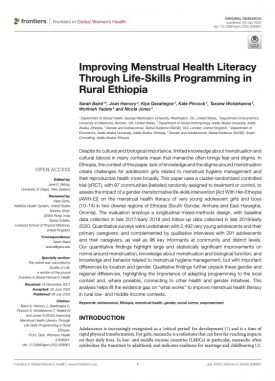Comprehensive sexuality education (CSE) seeks to improve young people’s knowledge, attitudes and practices in relation to sexual and reproductive health, sexual and social relationships, and dignity and rights. In Ethiopia, young people with disabilities and young women involved in sex work are particularly vulnerable to sexual violence and poor sexual health, yet face stigma and accessibility challenges that continue to exclude them from information, support and services. Because they are often out of school, these groups are also often excluded from programmes that are largely delivered in school settings. This paper explores the challenges faced by these groups of young people in accessing inclusive and age-appropriate sexual and reproductive health knowledge and services in the Ethiopian context and the implications for delivering CSE. The research included literature review, mapping analysis and interviews with young people from those two groups and with service providers and programme implementers. Our findings indicate that young people with disabilities and young women involved in sex work face myriad barriers to accessing information and services that support positive and healthy sexuality, relationships and rights. However, changes over the past decade to national and regional governance structures and a political environment in which CSE has become increasingly contested have generated siloed approaches to the provision of sexual and reproductive health information and services, and poor linkages to complementary services including violence prevention and social protection. It is vital that efforts to implement comprehensive sexuality education are informed by these challenges in the wider policy environment.
Suggested citation
(2023) ‘Comprehensive sexuality education for the most disadvantaged young people: findings from formative research in Ethiopia’, Sexual and Reproductive Health Matters, 31:2, (DOI: 10.1080/26410397.2023.2195140)


